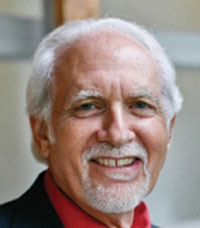

Students: Time is ripe to add gender to gun debate
By Rob Okun
It’s time to listen to the students. Across the country, teenagers have walked out of classes, stood in holy silence, and delivered stirring speeches calling out their elders for failing to prevent their schools from becoming shooting ranges for raging men. On Saturday they’ll protest in Washington with adult allies among the throngs in the capital and at hundreds of student-organized satellite rallies nationwide.
Students have been fierce and articulate in their unequivocal demand that they attend safe schools. Recognizing the role of gender in mass murders like the one at Marjory Stoneman Douglas High School is critical to accomplish this goal.
We certainly must applaud these young people for calling out the NRA— “Our lives are worth more than your wealth”—as well as outing the politicians whose coffers the gun lobby has lined. They know the NRA is about men and money.
In my years working to transform societal ideas about masculinity and manhood, it has become undeniable that the gender of the shooter—almost always male—is as essential in the gun debate as are stricter laws and mental health screenings. I’d welcome hearing high school students’ thoughts in a cross – generational dialogue that included how we raise boys and how we navigate the culture of violence in which we live.
We in the 40-year old profeminist antiviolence men’s movement have always viewed shootings like Parkland, Florida through a gendered lens. Men’s mass murders at schools (or churches or movie theaters) need to be understood not by their location but in the larger context of our culture of violence, including, of course, men’s disproportionate enactment of that violence.
In the national conversation about men’s murderous rampages, nonviolent men are an underutilized resource. If this is a #MenStopHurting moment, then multigenerational men can be a positive force, leaving the sidelines as mute bystanders and becoming outspoken agents of social change.
Among our efforts must be cultivating men’s emotional intelligence. Is there anyone who would deny the value of educating boys to examine their inner lives; to encourage young men to talk about their feelings? This is where the Centers for Disease Control (CDC) can come in.
Awakened by the piercing call to action students have sounded, they can pressure Congress to fund the CDC to conduct a nationwide study on how we socialize boys—and push for a comprehensive, multi-year study, perhaps with Head Start students in the pilot group. The results will no doubt yield a bounty of data to help reshape our understanding of boys and men and ultimately transform masculinity.
With their unflagging commitment to speak truth to power coupled with innate organizing know-how, I feel optimistic that students will incorporate gender into their campaign. They very well may be the ones to help realize a dream many of us have had since the Columbine massacre nearly 20 years ago: a national “Men Against Men’s Violence” campaign. Or, put more positively, a “Campaign to Transform Manhood.”
The day after Adam Lanza murdered his mother and 20 six and seven-year-olds and six staff at Sandy Hook elementary school in 2012, women launched “Moms Demand Action for Gun Sense.” A crucial step. Isn’t it time we launched a similar dads and men’s organization that includes gender in its mission?
Students: keep up the pressure to ensure legislators pass assault weapons bans. Demand they raise the age requirement to purchase firearms. Insist on funding for mental health screenings. Also, please don’t forget to press for research dollars and training initiatives on how we raise boys.
Use your burgeoning activist savvy to engage your fathers, brothers, uncles, single men, gay men, men of color, indigenous men, white men, male coaches, teachers, principals, and clergy, to question male privilege and challenge men to chart a new course in their lives—not just in the gun violence debate but in conversations about respecting women and girls, and themselves. In the process, you will help accelerate the transformation of conventional masculinity into an openhearted expression of masculinities.
The list of potential allies to join the movement you’ve ignited is long. In the end though, it is students leading the way. For the rest of us, we want you to know we’re listening.





Be the first to comment